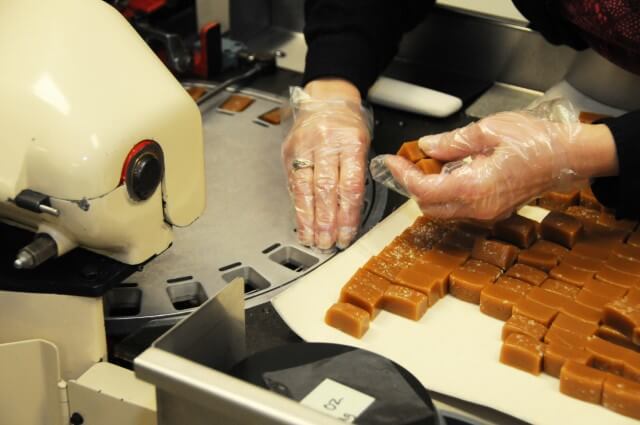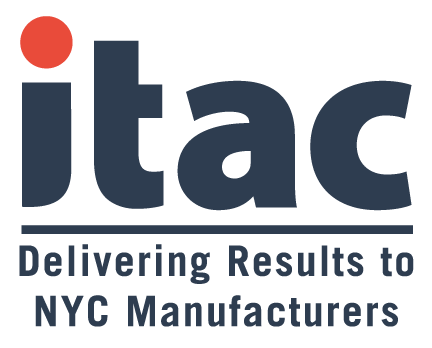Optimization
Through Operational Excellence, ITAC helps companies measure and improve their efficiency, productivity and performance, in a constant loop of measurement, improvement and measurement.
Operational Excellence is high on the agenda of manufacturers, who use it to enhance their competitive advantage. Designed to help achieve a lasting and meaningful impact, it is a complete shift in the way an organization operates: it is culture-driven, requires everyone’s commitment, and involves undertaking a comprehensive operations assessment to improve processes that increase bottom line results.
- Continuous Improvement
- Sustainability
- Supply Chain Optimization
- Quality & Certifications
- Financials
- Workforce
Continuous Improvement / Lean Manufacturing
ITAC views Lean Manufacturing as a component of the Continuous Improvement philosophy. Used to reduce lead times, minimize inventory and raise productivity, Lean techniques are accepted as best practice in manufacturing, front office processes and production functions.
We offer several programs to streamline processes and systems, improve costs, manage materials, ensure quality, and measure performance. More specifically, our experts quickly hone in on the best opportunities to minimize overproduction, inventory, wait time, production bottlenecks, defects and any other inefficiencies. This results in improved production and financial performance, as well as enhanced customer satisfaction and increased competitiveness.
ITAC’s Continuous Improvement / Lean tools include:
Lean 101 Introductory Workshop
Experience first-hand how Lean techniques improve quality, reduce cycle time and improve delivery performance, enabling your company to increase its profits. ITAC can also present the Lean 101 Workshop to your workforce at your site, in English or Spanish.
Value Stream Mapping
Developing a material and information flow map for major products or processes that will help you identify Lean priorities.
5S Visual Workplace
5S is a simple, yet powerful framework that helps to improve housekeeping, workplace organization and work standardization. It translates into improved quality and space utilization, reduced costs, increased safety with well-maintained equipment and workspaces, and better morale linked to an improved work environment.
Total Productive Maintenance
Total Productive Maintenance helps to improve quality and capacity and reduce equipment downtime. It also maximizes equipment productivity and fosters an environment that engenders safety, quality, delivery, cost and creativity by encouraging employee participation.
Set-Up Reduction
Set-up reduction can dramatically reduce or even eliminate changeover time, which will reduce inventory and increase your capacity and ability to meet customer demands for rapid delivery of high-quality products.
Cellular Manufacturing
By linking manual and machine operations into the most efficient combination of resources, you can minimize parts movement and excess inventory while increasing productivity.
Kaizen
Kaizen events are intense, focused efforts to quickly improve a process by eliminating waste wherever possible. Kaizen events are about achieving several smaller, incremental changes that, over time, yield larger cumulative results. The importance of calling in experts as well as outsiders is fundamental to Kaizen events. When done right, these events produce measurable changes and ensure business stability and growth.
Kanban System
Kanbans are an integral part of a pull system that results in improved flow of information and materials based on actual consumption instead of forecasts. They help you increase customer satisfaction, dramatically reduce inventory investment, and eliminate waste in materials handling and storage.
Lean Office
Lean Office & Administration helps to streamline the flow of information throughout your organization. Improving your firm’s ability to gather, move and store information results in increased efficiency and lower costs.
Production Planning & Inventory Control
An efficient production planning process is the critical link to product quality, system stability, and overall profitability. ITAC’s production planning services include site analysis, evaluation of current processes, feasibility studies, creation of process and production plan, implementation assistance and production ramp-up.
ITAC also works with you to review your current inventory management practices and develop solutions to reach your objectives – whether a high-level roadmap, a detailed analysis to be used as a decision-support tool, or an inventory optimization plan.
Equipment and Automation Planning
Maximize capital investment by ensuring that new equipment is selected carefully to work in concert with existing resources to achieve production goals.
Plant Layout and Workflow
ITAC’s planning specialists can help you (re-)configure your space for maximum output and efficiency, based on your unique situation, time frame, square footage, space constraints, location and operating costs. Thanks to solid experience, proven methodologies and a fresh perspective, we help you identify efficiency improvements throughout your operations.
Theory of Constraints
Every process has a constraint and focusing improvement efforts on that constraint is a fast and effective path to improving profitability.
GrowSmart
GrowSmart can help you to develop a plan to optimize new real estate. Though this program, ITAC has helped numerous companies to assess their current operations, improve their workflow, understand their relocation needs and plan accordingly.

Sustainability
Numerous manufacturers are looking to advance the transition from the currently prevailing linear model (extract/produce – consume – collect – landfill) to a more sustainable, circular one that aims to reuse resources and decrease waste. ITAC is committed to helping manufacturers focus on the triple bottom line to measure their financial, social and environmental performance over time.
Sustainability Assessments/Strategy
How is your facility performing compared to industry averages? Strategies for improved sustainability have become critical for maximizing demand, attracting the best employees, and gaining community acceptance.
ITAC works with you to gather relevant operational data and conduct on-site observations of processes and equipment. We then calculate key performance indicators on water, waste, recycling, or packaging, along with corresponding costs. After identifying opportunities for improvement and savings, we perform a detailed technical and economic feasibility analysis of the recommended upgrades, and provide you with solid estimates around required investments, your expected return on investment and anticipated environmental benefits.
Pollution Prevention
ITAC helps you become more resource-efficient and economically stronger by helping you to apply sustainable technologies, optimize your processes and reduce toxics and waste. In addition to a reduced environmental impact and safer working conditions, our companies benefit from lower costs and competitive positioning as an environmentally-conscious business.
Preparation for Customer Audits
Corporate social responsibility reporting is quickly becoming standard, and many larger corporations are aggressively greening their supply chains. The direct consequence is that for thousands of suppliers throughout New York City, the bar has been raised.
Whether they involve a complete assessment of environmental impacts associated with your business, or a focus on a particular area, ITAC can help you navigate confusing environmental requirements and prepare for audits. While they are often compliance-driven, these audits equip you with valuable information and recommendations to help you stay ahead of the curve.
Lean and Sustainable Design
Lean Product Development applies the waste-elimination philosophy of lean to the product development process, allowing firms to reduce time to market, development expense, and other product development risk, while improving resource utilization and product costs.
Firms that embrace Lean Product Development have reported:
- Up to a 50% reduction in launch schedule
- Dramatic improvements in gross margin
- Enhanced customer satisfaction
ITAC helps you transform your product development process through services and resources such as Lean Product Development, Lean Product Design, and Lean and Sustainable Product Design Toolkits. These methods can easily be scaled to your company’s size and are recommended for manufacturers who are new to product development or trying to improve their current product development process.

Supply Chain Optimization
The competitiveness of manufacturers is greatly impacted by their supply base and their strategy for handling it. Manufacturers that look only at supplier capability, price, and service are missing an opportunity for competitive advantage through collaboration, integrated information systems, and risk management. Transparent integration contributes to world-class innovation, responsiveness to global market demand, quality improvements, sustainability, and other factors that differentiate companies from their competition.
Supplier Scouting
ITAC helps you identify domestic suppliers that meet specific criteria. And if you are a qualified supplier, we can also connect you with the supply chains of large companies.
Supplier Scouting approaches are tailored to the specific needs of customers – from “small makers” to more established companies – resulting in the delivery of interested and capable domestic manufacturers to solve the most challenging supply chain needs. Beyond the capacity to deliver products, we can also help you identify companies with process capabilities, or even demographic attributes.
Supply Chain Strategy
From the identification of new suppliers and materials through the distribution to customers, manufacturers must remain strategic in their quest to increase visibility and mitigate risk. By assessing situations and implementing strategic solutions through collaboration with suppliers and customers, they will develop a better understanding of the true total cost of their supply chains and achieve more consistent manufacturing growth.
ITAC helps you promote a better flow of production from suppliers to customers, resulting in reduced cost, improved quality and shortened lead times. Our Supply Chain Optimization roadmap includes a set of workshops and strategy sessions around:
- Executive Engagement, with a focus on the critical components required to create and implement a supply chain plan that delivers higher value, including profitability and satisfaction for every stakeholder within the system
- Partner Engagement, whereby suppliers and partners are introduced to Constraint Theory and a methodology to resolve bottlenecks within the supply chain
- Risk Management to evaluate, assess, and prioritize the probability of unexpected events.
- Total Cost of Ownership (TCO), a method for quantifying the costs for every activity along the supply stream and comparing multiple sourcing scenarios

Quality & Certifications
Although implementing certification standards can be daunting, manufacturers choose to do so in order to demonstrate their commitment to quality and continuous improvement. That procurement professionals are now expecting more accountability and quality checks throughout their supply chain helps convince those manufacturers that were initially reluctant to pursue such certifications of their importance.
Quality Systems Assessment
Setting up and maintaining an effective quality system entails having a thorough understanding of your current compliance. ITAC helps you achieve this understanding through:
- Gap assessments, to come up with a prioritized list of areas needing improvement, and evaluate the quality of your process
- Internal audits, as tools to prevent errors and ensure continuous improvement
- Supplier audits to ensure that the quality processes of your main suppliers are regularly evaluated
- Mock audits and training to ensure that you are ready for your next inspection
Quality Systems Management
Whether certifications are compliance-driven or not, they provide a variety of internal and external benefits to companies large and small. The documentation of company processes leads to more consistent and efficient production processes as well as reduced waste. Employees gain greater understanding of their roles and responsibilities, and the documented system forms the basis for training current and new employees. Companies that have achieved certification have systems in place that help them increase their output, produce higher quality products, minimize rework, and thus benefit from increased customer satisfaction and profitability.
If you have been certified, how do you know if you are continuing to meet standards? And if you have not yet been certified, how near or far are you from meeting standards? ITAC works with you to regularly evaluate and test the quality of your processes, and help you maintain standards and improve performance throughout your organization.
ISO
The ISO 9000 family provides guidance and tools for companies that want to ensure that their products and services consistently meet customers’ requirements, and that quality is steadily improved.
ITAC can assist you review the documentation and procedures in anticipation of the ISO 9000 registration audit. We will:
- Assist in conducting internal audits to measure compliance to the documented quality system
- Provide guidance in correcting deficiencies noted during the review process
- Provide the necessary assistance during the ISO registration audit, and work with the registrar in resolving identified problems
- Be present for the ISO registration audit to provide
Six Sigma
While Lean Manufacturing improves and speeds the process, Six Sigma perfects it. Six Sigma seeks to improve the quality of process outputs by identifying and removing the causes of defects and minimizing variability in manufacturing and business processes. Eliminating waste not only reduces costs, but more importantly allows a business to become faster and much more responsive to its customers, driving revenue growth.
Statistical Process Control (SPC)
Taking the guesswork out of quality control, Statistical Process Control (SPC) is a scientific, data-driven methodology for quality analysis and improvement. While all processes exhibit intrinsic variation, excessive variation can produces undesirable or unpredictable results. SPC, in a manufacturing process optimization context, is used to reduce variation. ITAC’s Statistical Process Control curriculum includes evaluating basic statistics and their application for process control, variation, probability, normal distribution curve, standard deviation, and control charts.
Food Safety
Heightened consumer demand for increased food safety assurances now has retailers and service providers asking suppliers to provide verifiable proof that robust food safety control systems have been effectively implemented. ITAC supports manufacturers and their suppliers manage operational risks and guides them in evaluating which food certification would best accommodate them and the markets they participate in. We then manage the entire compliance and certification readiness process, working directly with you to mitigate risks, secure certification and drive business performance.
Food Safety Modernization Act (FSMA)
The FDA Food Safety Modernization Act (FSMA) is transforming the nation’s food safety system by shifting the focus from responding to foodborne illness to preventing it. The FDA has finalized seven major rules to implement FSMA, recognizing that ensuring the safety of the food supply is a shared responsibility among many different points in the global supply chain for both human and animal food. The FSMA rules are designed to make clear specific actions that must be taken at each of these points to prevent contamination. A Preventive Controls Qualified Individual (PCQI) certificate is crucial to the management and preparation of the food safety plan, validation of preventive controls and more, and ITAC helps you complete this specialized training under a standardized curriculum that is recognized by the FDA.
Hazard Analysis and Critical Control Point (HAACP)
Hazard Analysis & Critical Control Points – HACCP — is a management system in which food safety is addressed through the analysis and control of biological, chemical, and physical hazards from raw material production, procurement and handling, to manufacturing, distribution and consumption of the finished product.
ITAC’s experts quickly and efficiently integrate their knowledge of the food industry with requirements of the many regulatory agencies that oversee HACCP. We can develop your entire HACCP and safety programs, ensuring that each of the seven principle steps of HACCP is adequately addressed.
Safe Quality Food (SQF)
The Safe Quality Food program is recognized by retailers and foodservice providers around the world and ITAC can assist you in obtaining your certification, which generally takes an average of six to nine months, depending on a facility’s level of readiness.
Occupational Safety and Health Administration (OSHA)
With proper training and on-going discipline, workers at all levels can prevent workplace accidents and health hazards. ITAC can help you contain operating costs, mitigate insurance losses and keep the workplace safe. Our experts are trained to recognize problems, understand regulatory requirements, and bring companies up to compliance before fines or accidents can occur.

Financials
Without proper budgeting and forecasting, meeting ROI and profitability objectives would be difficult. The importance of cost accounting should not be underestimated either, as it allows for a clear understanding of your organization’s fixed and variable costs, so that you can optimize your budget and allocate resources where they are most needed. ITAC also helps numerous manufacturers adopt relevant programs that help reduce their tax burden.
Budgeting / Forecasting
ITAC’s budgeting and forecasting experts can help you reduce operating costs, improve cash flow, and achieve proper financial reporting. You walk away with clear dashboards, impeccable financial models, and insightful analytics to help you control and grow your business. Services include:
- Design and management of the budgeting process
- Analysis of historical operating results to identify trends and explain variances
- Rolling forecasts
- Multiple scenario modeling and sensitivity analyses
- Analysis of future cash flow requirements
Research consistently shows that many firms fail to execute their strategies, and that few employees have a strong understanding of their company’s strategy. If used effectively, the planning, budgeting and forecasting process can be a powerful tool to help translate strategy into actions throughout your organization.
Cost Accounting
Many businesses require greater clarity around where their costs are actually incurred. They need better understanding as to which products, processes and customers generate profits vs. losses.
ITAC’s accounting experts work with you to perform detailed costing analyses. We find inefficiencies, streamline processes and cut costs. More specifically, ITAC offers:
- Data analysis to determine costs of business activity, such as raw material purchases, inventory, and labor
- Identification of influential cost drivers and methodologies for applying costs to products
- Evaluation of changes in product design, raw materials, manufacturing methods, or services provided, to determine effects on costs
- Forecast preparation and trend analysis in manufacturing, sales, finance, and general business conditions
- Financial analysis of business results and recommendations around improvement opportunities
- Reports specifying factors affecting prices and profitability of products
- Recommendations for areas of improvement and streamlining
Tax Incentives
There are numerous programs to help manufacturers reduce their tax burden. As an example, some companies may be unaware that many of their efforts to design products qualify as Research & Development and may make them eligible for tax credits for expenditures associated with these activities. ITAC can help you uncover and describe the activities that qualify and assist you in getting the appropriate tax credits

Workforce
According to a 2018 skills gap study from Deloitte and The Manufacturing Institute, the widening manufacturing skills gap is expected to grow to as many as 2.4 million manufacturing jobs going unfilled between now and 2028. In fact, research shows that five out of ten open positions for skilled workers in the U.S. manufacturing industry remain unoccupied today due to the skills gap crisis. This workforce crisis, the study found, could put at risk $2.5 trillion in manufacturing GDP over the next decade.
In New York City, manufacturing companies face even stronger pressure to remain competitive and improve productivity, given the heightened costs of living and operating. Straightforward tasks that require manual labor are being targeted for automation or outsourcing. The nature of the work that remains requires technical training and skills beyond what was expected just a few years ago. While hiring workers with a specific skill set is viewed as necessary by most, it is not sufficient. In addition to both technical and soft skills, it is malleability — the willingness and eagerness to adapt and learn — that now matters most.
HR Workforce Development
Today’s best run businesses have an outstanding workforce that increases the company’s competitive edge and maximizes profitability. ITAC’s comprehensive approach to workforce development results in increased productivity and a change in company culture that empowers and motivates the entire team. We help you build strong teams and organizations by building alignment on what truly matters, focusing on those opportunities that will “move the needle”, defining roles and accountability, getting the appropriate certifications, and embedding a delivery culture.
Policies and Manuals
ITAC can help you develop policies and procedures, and establish employee and employer expectations. We also work with you to develop employee manuals that outline these procedures, provide valuable information, enhance your work environment, and may protect you should employment-related claims ever occur.
Compensation and Performance Appraisals
ITAC works with you to design and implement fair and practical compensation programs that support your mission. We also help you link your compensation program to the performance appraisal process. This drives the outcome and behaviors that will contribute to your success and creates a customized and systematic approach to performance and compensation reviews.
Training Plan Development
ITAC help you plan, design and deliver the training programs you need. We start with determining your overall training goals and learning objectives, and then develop any materials you may need, plan the implementation of your training program, and evaluate the results to understand follow-up needs.



